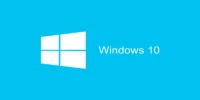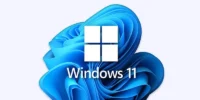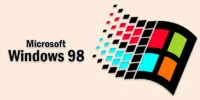What Is Windows 10? Key Info and Easy Ways to Check It
Published: 19 Jun 2025
System Requirements of Windows 10
Is Windows 10 compatible with your computer? Along with a 1 GHz processor, Windows 10, 32-bit PCs need 1 GB of RAM, and 64-bit PCs need 2 GB. Many users feel confused when their PC slows down after installing Windows 10, not realizing their system didn’t meet the proper requirements. If your device keeps freezing or loading slowly, you’re not alone. It’s a common problem. Imagine installing a brand-new system, only to find out it runs worse than before. That’s why knowing the system requirements of Windows 10 is so important.
What is Windows 10?
The Windows 10 operating system was created by Microsoft. It helps your computer work properly and lets you run programs, connect to the internet, and manage files. It has a user-friendly design and works on desktops, laptops, and tablets.
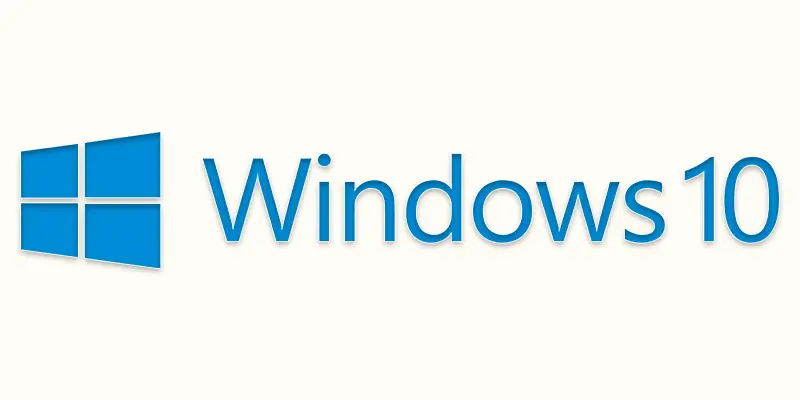
Why are system requirements important?
System requirements are crucial since they indicate whether your machine is capable of running an operating system or program, such as Windows 10. These specifications must be met by your computer in order for the software to function properly, if at all. You could face problems like freezing, crashing, or slow performance. By checking system requirements first, you can save time, avoid frustration, and keep your computer running smoothly.
Windows 10 Minimum System Requirements
The fewest hardware components your computer requires to operate Windows 10 are known as the minimum system requirements. Windows 10 will start and function if your computer has these, but it might not operate smoothly or quickly.
Processor (CPU)
Your computer needs at least a 1 GHz processor. This means the brain of your computer should be fast enough to handle basic tasks. Anything slower may cause problems.
RAM (Memory)
One gigabyte of RAM is needed for the 32-bit version and two gigabytes for the 64-bit version. RAM helps your computer run programs and switch between tasks. Less RAM means slower performance.
Storage (Hard Drive Space)
On 32-bit computers, Windows 10 requires at least 16 GB of free space; on 64-bit systems, it requires 20 GB. The system files are kept in this area. If your storage is too small, installation won’t work.
Graphics Card
A graphics card with a WDDM 1.0 driver and support for DirectX 9 or later is required for your computer. This aids in properly displaying pictures and movies on your screen.
Display
The minimum screen resolution should be 800×600 pixels. Lower than this, and the display may look unclear or some parts may not show properly.
Recommended System Requirements
For smooth performance and faster speed, try to meet these specs:
- Processor: 2 GHz dual-core or faster
- RAM: At least 4 GB
- Storage: 64 GB or more of storage (SSD preferable)
- Graphics: compatible with DirectX 12
- Display: 1920×1080 (Full HD)With these, your PC will run Windows 10 more smoothly and open apps faster.

How to Check Your Computer’s Specs
Determining whether your PC satisfies Windows 10 system requirements is simple.
Making Use of System Data:
- Press the “Start” button.
- In the search box, type System Information.
- When the System Information app opens, click on it.
- Here, you can see your processor, RAM, and other details.
Using Settings
- To access Settings (the gear symbol), click the Start button.
- Go to About → System.
- The sort of CPU you have, the quantity of RAM you have installed, and whether your system is 32-bit are significant details that will be displayed or 64-bit.
Checking Storage
- Open File Explorer.
- To view the amount of free space on your hard disk, click on This PC.
Tip: Write down or take a screenshot of these specs. Then, compare them with the Windows 10 system requirements to see if your PC is ready.
Can You Install Windows 10 on a Low-End PC?
Yes, you can—but expect slower speed. You can improve performance by:
- Disabling visual effects
- Turning off background apps
- Using the 32-bit version
- Installing only the needed programs
It won’t be super fast, but it can still work.
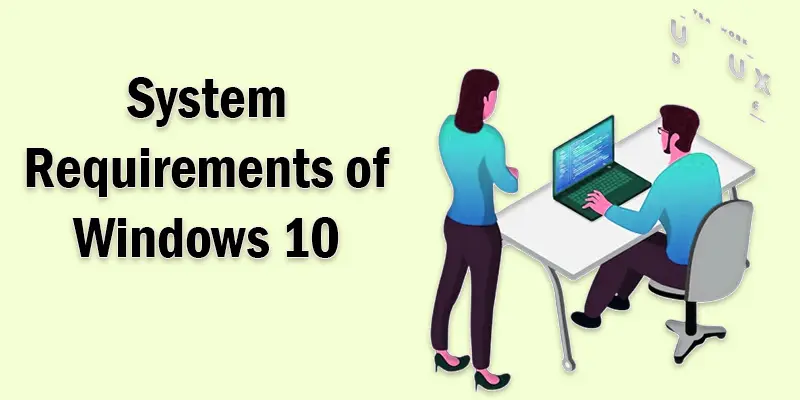
Conclusion About Windows 10 Requirements
We’ve covered the system requirements of Windows 10 in detail. I recommend checking your PC specs first and aiming for the recommended setup if you want smooth performance. If your computer is a bit old, try cleaning it up and upgrading parts like RAM or storage. Don’t skip this step—trust me, it saves you from big headaches later. Now it’s your turn—go check your PC and see if it’s ready for Windows 10!
FAQS
To find out, you need to check your PC’s specs like processor, RAM, and storage. Compare these to Windows 10’s minimum system requirements. Your computer can run Windows 10 if it satisfies or surpasses those requirements.
The minimum requirements are a 1 GHz processor, 1 GB of RAM (for 32-bit systems, or 2 GB for 64-bit systems), and 16–20 GB of storage. A display with 800×600 resolution and DirectX 9 graphics are also required. These are the basics to get Windows 10 running.
Indeed, Windows 10 can function with 4GB of RAM for simple tasks like browsing and streaming movies. However, it may feel slow if you open many apps at once. For smoother performance, 8GB is better.
It is feasible to upgrade from Windows 7 to Windows 10. Verify that the system requirements are met by your computer. Making a backup of your files before you begin is a smart idea.
A minimum of a 1GHz processor, 2GB of RAM, and 20GB of storage are required for Windows 10. A more recent processor, TPM 2.0 capability, 4GB of RAM, and 64GB of storage are required for Windows 11. So, Windows 11 has higher and stricter requirements than Windows 10.
Yes, some Intel i3 processors can run Windows 11, but not all. Your i3 must be from the 8th generation or newer and support TPM 2.0. Check Microsoft’s list to see if your i3 chip is supported.

- Be Respectful
- Stay Relevant
- Stay Positive
- True Feedback
- Encourage Discussion
- Avoid Spamming
- No Fake News
- Don't Copy-Paste
- No Personal Attacks

- Be Respectful
- Stay Relevant
- Stay Positive
- True Feedback
- Encourage Discussion
- Avoid Spamming
- No Fake News
- Don't Copy-Paste
- No Personal Attacks


